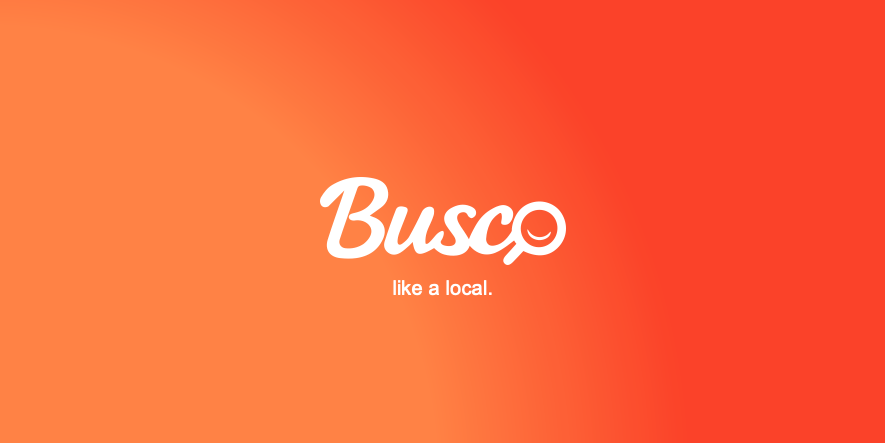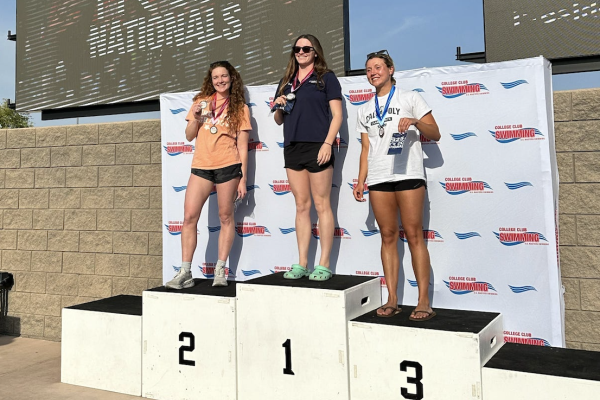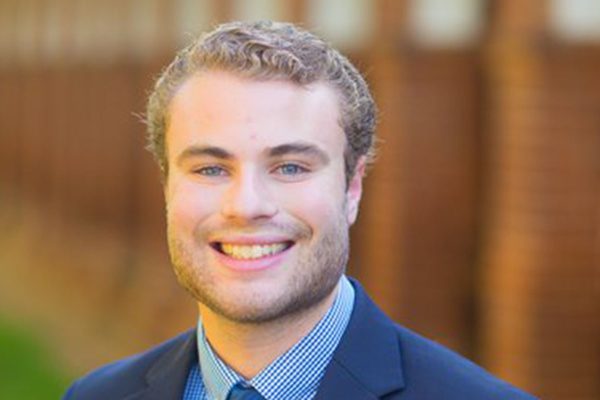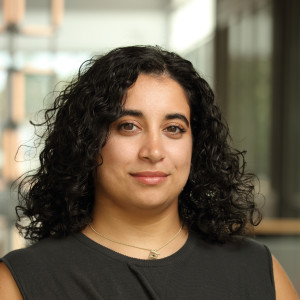
Darden's i.Lab cultivates AI startup cofounded by data science student

Artificial intelligence startup Salmos AI has been on a journey, from crafting an award-winning idea for the apparel industry to being on the precipice of launching a micro-advertising platform. Cofounded by two University of Virginia students, Darden MBA student Psalms Morales and Ph.D. in Data Science student Layla Ranjbar, Salmos AI has developed an app called Busco that aims to connect businesses to patrons worldwide.
Salmos AI is part of the i.Lab Incubator program, hosted by the Batten Institute for Entrepreneurship, Innovation and Technology at the Darden School of Business, and supported by UVA Innovates. The i.Lab program takes place in the summer and guides entrepreneurs from idea to market readiness for teams led or co-founded by a full-time UVA student. The Incubator supplies grant funding for the teams while also providing access to mentoring and advisory support from industry experts and experienced entrepreneurs.
Morales and Ranjbar initially entered the i.Lab Incubator with a proposal for Salmos, an AI-powered fashion technology platform that transforms images into 2-D clothing patterns. This technology would streamline pre-production steps to support garment workers and make personalized style more accessible and ethical.
But due to the technical intensity of that product, they made the decision to pivot to another of Morales' ideas, the micro-advertising platform that would become Busco.

The inspiration for Busco, which translates to "search for" or "to look for" in Spanish, came when Morales was exploring the nightlife in Mexico City and Lisbon, Portugal, some years ago. "When you really want to get some food, there's just no way to see where the puestos — the little food stands in Mexico City, Lisbon, and Latin America — are," Morales said. "These stands are unlisted, and there was nowhere to find the location of the vendors. So, I thought, 'we have to fix that.'"
Morales said this technology could, for example, help someone who moved to a new area and wanted to become acquainted with hyperlocal vendors. The team used geolocation and spatial analysis, along with rigorous data collection and management, to build a platform that could find puestos not only in places like Mexico City, but anywhere in the world.
Utilizing her data science background, Ranjbar spoke to the development of Busco's technical backend. "The most sophisticated thing that we're really building is the data architecture to collect this kind of data," Ranjbar said. "We're creating a truly novel data set, so we have to build a system to track that data and create it in a way that is useful and resourceful to people."
Ranjbar spoke about how her School of Data Science education has helped mitigate the challenges of such a daunting task. "I have a professor that I've worked with in the past who really focuses on data collection and dataset creation, which is not necessarily what people think about, but very often is one of the most formative things of the end result of artificial intelligence," she said.
Another aspect the team is looking to explore with Busco is an event space micro-advertising platform. Morales said this component of the app would harness the user's locations to display an array of events happening closest to them, changing throughout the day as events stop and start and as the user changes locations.
Salmos AI plans on the vendor location information to be the primary draw for users, and once a user base is established, they can begin charging for micro-advertising. "For people who throw events, they're relying on word of mouth, Instagram, or other things. We're offering a new platform that already has users brought on by these vendors," said Kiran Baucom, a Yale University Class of 2021 alum who joined Salmos AI as chief operating officer and a fellow cofounder.
Baucom said micro-advertisers would submit the time, location, and a description of their events and pay a very small fee. This would mean that for vendors, their visibility on the app is completely free and subsidized by the advertisers.
And while Salmos AI was able to switch to the Busco idea with the support and flexibility of the i.Lab program, they still plan to eventually bring the Salmos fashion tech to fruition as well.
Ranjbar shared how exciting the Salmos product is from a data science perspective, calling it a "cool problem." She described how the project requires a combination of mathematical, point-estimation, and computer-vision concepts. This idea will allow Ranjbar to draw from her computer vision Ph.D. research to work toward a solution for all of the multimodal inputs. These moving parts were a big reason why they elected to pursue Busco while in the i.Lab Incubator phase, but the team made it clear that it is still part of their future plans.
The Salmos AI team is working hard to launch Busco following two week-long intensive workshops to refine their projects in June and July, with final products presented at a demo showcase in August. But Morales said that, regardless of the app's success, the data they have captured and the app's mission are invaluable.
"This data is super impactful," Morales explained. "It recognizes that most individuals in the global south are forced into entrepreneurship. It isn't venture capital-backed. It isn't massive. It's individuals who, due to economic realities, have to be entrepreneurs."


